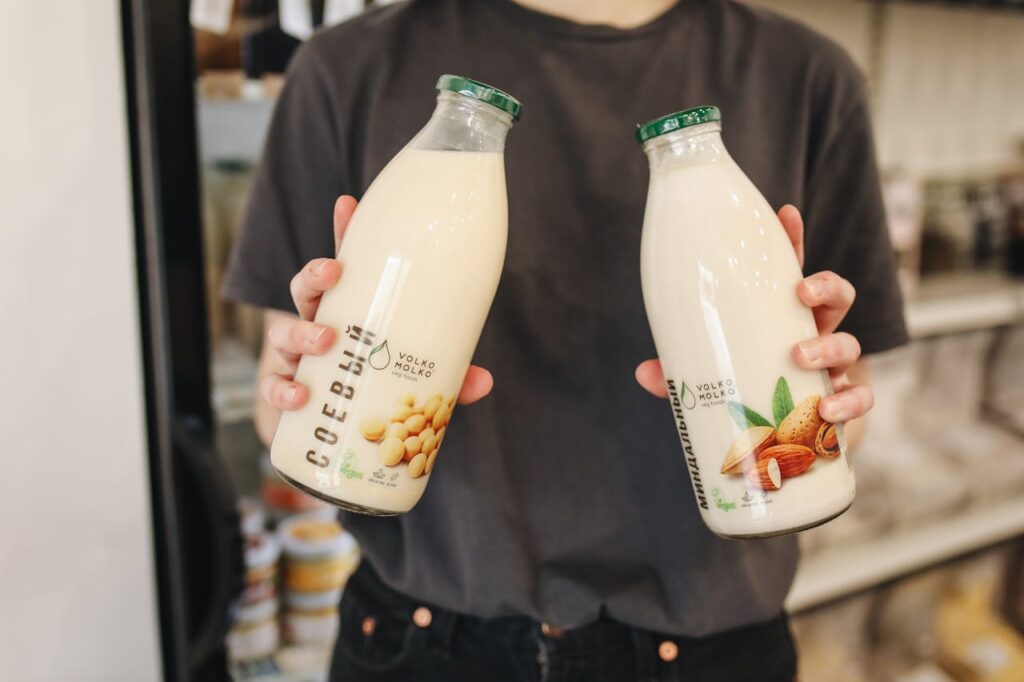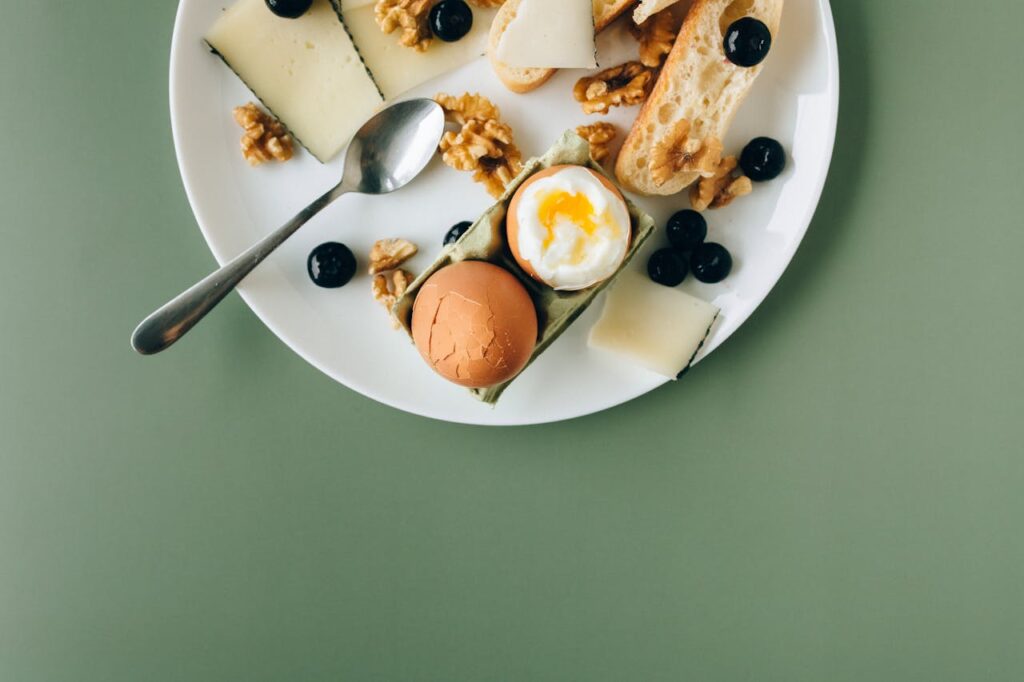Living with a dairy allergy or lactose intolerance doesn’t mean you have to sacrifice taste and texture in your meals. Whether you’re avoiding dairy for health reasons or by choice, there are plenty of delicious and nutritious alternatives that mimic the creaminess, flavor, and functionality of dairy products. Here are the top five dairy-free substitutes you can use in your everyday cooking.
1. Almond Milk
One of the most popular dairy-free alternatives, almond milk is widely available and versatile. It’s perfect for smoothies, cereal, and baking, and it has a mild, slightly nutty flavor that blends well with sweet and savory dishes. Almond milk is lower in calories compared to cow’s milk and is often fortified with calcium and vitamin D, making it a healthy option for your bones.

Best Uses:
- Cereal and oatmeal
- Smoothies and shakes
- Coffee creamer
- Baking
2. Coconut Milk
For a creamier, richer alternative, coconut milk is your go-to. Its high-fat content makes it ideal for curries, soups, and desserts where you need that extra bit of creaminess. While it does have a slight coconut flavor, it’s not overwhelming and pairs well with many dishes. Coconut milk also has healthy fats known as medium-chain triglycerides (MCTs), which may help boost energy levels.
Best Uses:
- Curries and stews
- Dairy-free ice cream
- Sauces and soups
- Desserts like puddings and custards
3. Oat Milk
Oat milk has surged in popularity due to its creamy texture and neutral flavor, making it an excellent dairy-free substitute in many dishes. It’s a fantastic option for people with nut allergies and is often used as a barista’s favorite for frothy lattes. Oat milk is also higher in fiber than most dairy alternatives, which makes it a filling, heart-healthy choice.
Best Uses:
- Coffee and lattes
- Creamy soups
- Pancakes and waffles
- Baking (muffins, cakes, etc.)
4. Cashew Cream
Cashew cream is a homemade dairy-free alternative that’s incredibly rich and creamy. It’s made by soaking cashews and blending them with water until smooth, creating a base that works well in both sweet and savory dishes. Cashew cream is an excellent replacement for heavy cream or sour cream in recipes and can be seasoned to fit your dish.
Best Uses:
- Creamy pasta sauces
- Dairy-free sour cream substitute
- Cheesecake and other desserts
- Salad dressings
5. Nutritional Yeast
While nutritional yeast isn’t a direct milk substitute, it’s a fantastic alternative for adding a cheesy, umami flavor to your meals. Often used in vegan cooking, this deactivated yeast is rich in B vitamins and can be sprinkled over popcorn, stirred into sauces, or used to make dairy-free “cheese” sauces.
Best Uses:
- Dairy-free cheese sauces
- Sprinkled over popcorn or roasted veggies
- Vegan mac and cheese
- Savory soups and stews
Bonus: Dairy-Free Butter Alternatives
If you’re missing butter in your cooking or baking, there are plenty of plant-based spreads available. Look for dairy-free butters made from oils like coconut, avocado, or olive, which work well in most recipes.
In Conclusion
Living dairy-free doesn’t mean missing out on the creamy textures and rich flavors you love. By incorporating these alternatives into your daily meals, you can enjoy a healthy, balanced diet that fits your lifestyle and dietary needs. Whether you’re pouring almond milk into your morning coffee or whipping up a batch of cashew cream for your pasta, these substitutes will make your transition to a dairy-free diet both easy and delicious.
Start experimenting with these alternatives today, and let your taste buds explore a world of dairy-free possibilities!

